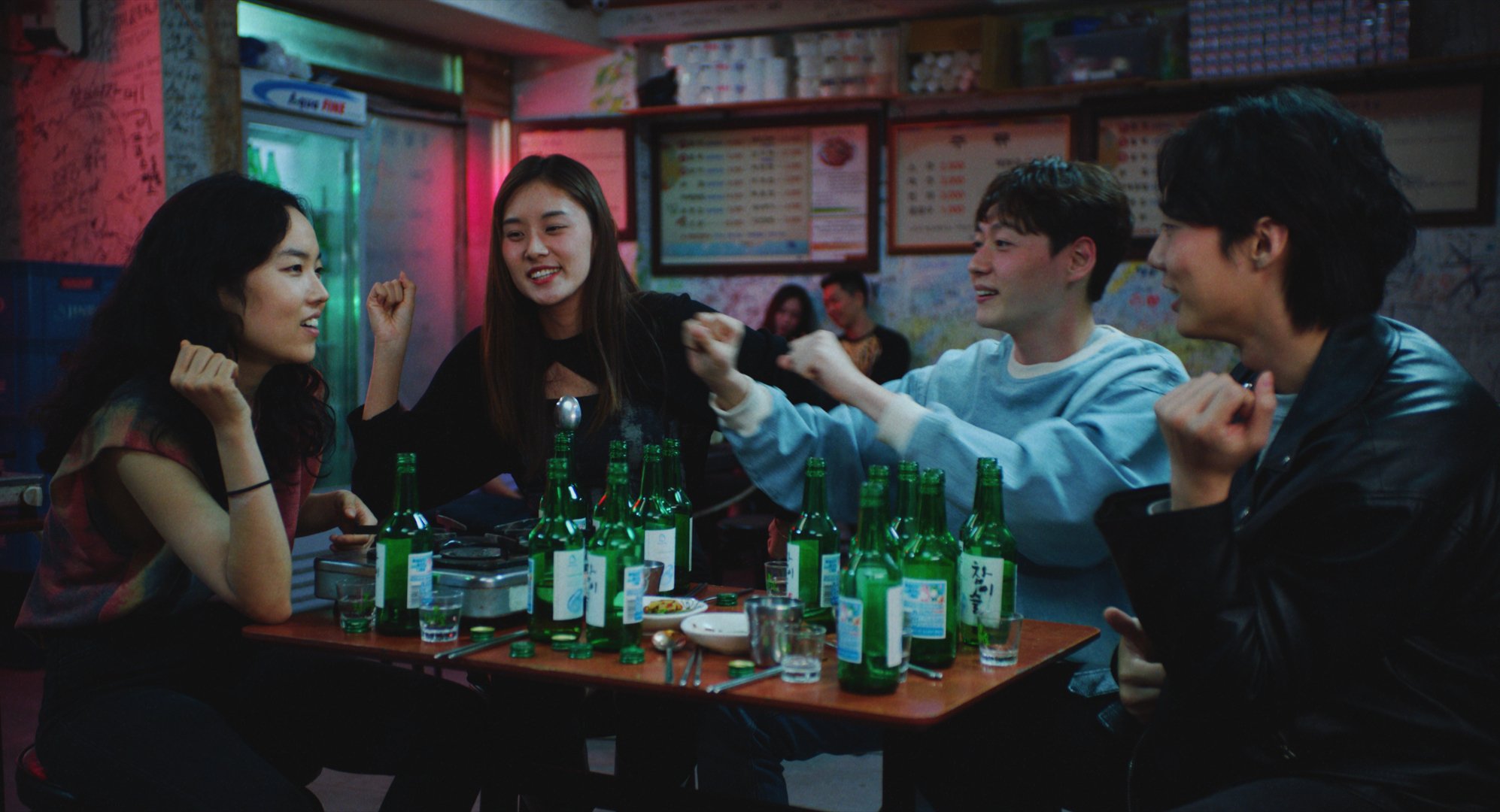Return to Seoul
Directed by Davy Chou
Running time: 1hr56 | REVIEWED BY CATHERINE BRAY
Return to Seoul by Davy Chou
I had a conversation recently with a French film industry figure, who suggested that UK indie films lately have a tendency towards what they experienced as solipsism. Enough, they said, of these films that are supposed to have value purely because they are telling someone’s story, that are based on a period in the life in the director. Although there are plenty of excellent films that follow this trajectory, I think I know what they were getting at. “This happened” is never enough by itself: the magic lies in what a talented filmmaker can add to “this happened.”
Return to Seoul, Davy Chou’s gorgeous drama about exploring your roots, is a dazzling example of the kind of film which, in the wrong hands, could have been a “this happened” film (is it informed by the experiences of a friend of the director), but which blows such concerns out of the water. You don’t need to have anything whatsoever in common with the narrative of this young woman’s quest to meet her biological parents in South Korea – you’ll be swept away by this extraordinary film, regardless of the extent to which you can or can’t relate. It is stunningly good.
Taking place across eight transformative years in the life of Freddie (Park Ji-min), it was originally titled All the People I’ll Never Be back when when it played at Cannes. I can see why they might have retitled it, but honestly, I think I prefer the original title. It gestures towards one of the film’s key strengths, which is showing us with clear-eyed compassion how very true it is that every person contains multitudes, and that these multitudes play out across time as well as space. Life is one long process of discovering not just your true self, but your true selves.
Being too keen to pin down and define a character, it’s easy for screenwriters to forget that real people’s characters shift over time, often quite dramatically, and that in any case, people act in ways that are supposedly out of character all the time. It is rare to meet a person who is always perfectly consistent, and this is a mistake it’s easy to make about real people too – perhaps particularly friends and family, with the result that people end up boxed into set-menu versions of themselves, which may no longer be quite accurate, or serve who they have become. Freddie’s journey reflects this, and moreover is unafraid to roll the dice and gamble with her likability, that currency by which female heroes are usually sold to us.
The result is a chewy, changeable, and endlessly engaging journey through some significant years in a young woman’s life – although crucially, the film avoids the implication made by some coming-of-age films that certain years are more important than others, or that we ever stop changing, growing, fucking up, course-correcting, making good decisions and bad ones, pursuing best-laid plans or being knocked about by unforeseen impulses. But the extent to which Return to Seoul is informed by real life is besides the point, when the filmmaking is capable of birthing an onscreen character who is so very alive on her own terms.
RETURN TO SEOUL (2022) Written by Davy Chou | Shot by Thomas Favel | Edited by
Now in UK cinemas
